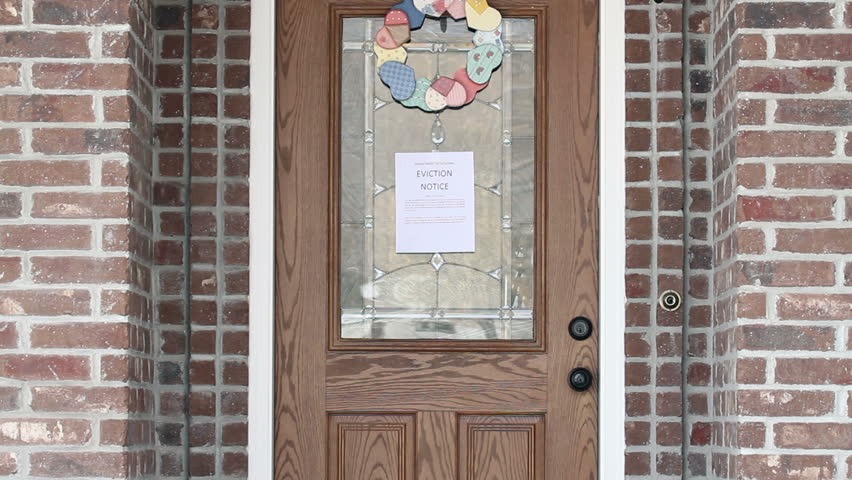RIGHTS AND DUTIES OF TENANTS FLORIDA
RIGHTS AND DUTIES OF TENANTS
 When a person pays rent to live in a house, apartment, condominium or mobile home, the renter becomes a tenant governed by Florida law. It doesn’t matter whether payment is made weekly, monthly or at other regular periods. Also, it doesn’t matter whether the apartment, house, condominium or mobile home is rented from a private person, a corporation or most governmental units. These facts are true even when there is no written “lease” agreement.
When a person pays rent to live in a house, apartment, condominium or mobile home, the renter becomes a tenant governed by Florida law. It doesn’t matter whether payment is made weekly, monthly or at other regular periods. Also, it doesn’t matter whether the apartment, house, condominium or mobile home is rented from a private person, a corporation or most governmental units. These facts are true even when there is no written “lease” agreement.
A tenant has certain rights and responsibilities under Florida law. These are specified in the Florida Statutes at Part II, Chapter 83, the Florida Residential Landlord Tenant Act. A tenant in federally subsidized rental housing has rights under federal law, as well. If there is no written lease, these laws regulate the tenant’s rights. There also may be a written lease that could affect a tenant’s rights. If there is a written lease, it should be carefully reviewed. The Florida Residential Landlord Tenant Act prevails over what the lease says.
A tenant is entitled to the right of private, peaceful possession of the dwelling. Once rented, the dwelling is the tenant’s to lawfully use. The landlord may enter the dwelling only in order to inspect the premises or to make necessary or agreed upon repairs, but then only if the landlord gives the tenant reasonable notice and comes at a convenient time. If an emergency exists, the requirement for notice may be shortened or waived.
The landlord is required to rent a dwelling that is fit to be lived in. It must have working plumbing, hot water and heating, be structurally sound and have reasonable security, including working and locking doors and windows, and it must be free of pests. The landlord also must comply with local health, building and safety codes. If the landlord has to make repairs to make the dwelling fit to live in, the landlord must pay.
If the landlord contends that the tenant has violated the rental agreement, the landlord must inform the tenant in writing of the specific problem and give the tenant time to correct the problem – even if the problem is nonpayment of rent – before the landlord can go to court to have the tenant removed. Tenants receiving a nonpayment-of-rent notice should be aware that a landlord may accept part of the rent owed and still evict the tenant. Tenants renting condominiums should be aware that, in certain circumstances, the condominium association may demand that the tenant pay the rent to the association instead of the landlord. Tenants should consult an attorney in this case. If the tenant commits a serious act endangering the property (such as committing a crime on the premises) or fails to correct a problem after written notice from the landlord, the landlord still must go to court to be permitted to evict the tenant. In any court proceeding, tenants have the absolute right to be present, argue their case and be represented by an attorney.
GET TENANT HELP > READ TENANTS HELP PAGES
If the landlord requires the tenant to pay a security deposit, the landlord must preserve the deposit during the tenancy. In addition, the landlord must return the full amount of the deposit within 15 days after the tenant leaves the dwelling or give the tenant written notice of why some or all of it won’t be returned within 30 days after the tenant leaves the dwelling. The tenant then has the right to object in writing within 15 days of receipt of the notice. Under some circumstances, the tenant may receive the security deposit plus interest. Before moving out, the tenant must provide the landlord with an address for receipt of the security deposit, or else the tenant may lose the right to object if the landlord claims the right to keep the deposit money.
The tenant has the right, under certain very aggravated circumstances caused by the landlord’s neglect, to withhold rent. This can be done only when the landlord fails to comply with an important responsibility, such as providing a safe and habitable home in compliance with local housing codes. Before rent is withheld, the tenant must give the landlord seven days’ written notice of the problem so the landlord can fix it. Even after withholding rent, the tenant should save the money and seek court permission to spend part of it to do what the landlord should have done. If the tenant does not preserve the money and seek court assistance, the tenant may be evicted for nonpayment.
Finally, the tenant has the right to move out. If there is a written lease, the tenant should read the lease closely to see if it requires up to 60 days’ notice that the tenant does not intend to stay after the lease ends. If there is no written lease, the tenant may move out for no reason by giving written notice of the intent to leave no fewer than seven days before the next rent payment is due, if the rent is paid weekly, or 15 days, if the rent is paid monthly. The tenant may terminate the rental agreement if the landlord has failed to live up to a major obligation, provided the tenant has sent written notice to the landlord seven days before the rent is due (there are some exceptions to the right to move out).
If a landlord loses in court, the landlord may be held liable for any costs and attorney’s fees incurred by the tenant. If the tenant loses in court, the tenant may be liable for the landlord’s costs and attorney’s fees.
A tenant also has responsibilities that, if not observed, can lead to eviction. The tenant must pay the agreed-upon rent and do so on time. The tenant must comply with building, housing and health codes. The tenant must maintain the dwelling without damage, other than ordinary wear and tear, keep the dwelling clean and maintain the plumbing. The tenant must not violate the law or disturb the peace, nor allow guests to do so.
In trying to evict a tenant, a landlord will try to prove that the tenant violated a tenant responsibility. However, the landlord may not seek to evict a tenant in retaliation for legitimate complaints about housing conditions to proper authorities. No eviction can occur until the landlord first gives the tenant notice of the problem and then gets a court order. Without the court order, the landlord has no power to interfere with the tenant. The landlord cannot, for instance, lock a tenant out or cut off a tenant’s utilities. A landlord engaging in this type of prohibited practice may be liable to the tenant for damages in the amount of three months’ rent or actual damages, whichever is higher. The landlord must get a court order of eviction before interfering with the tenant’s occupancy.
If a tenant is served with papers seeking eviction, the tenant should immediately seek legal assistance. The tenant may have legal defenses. For instance, the landlord cannot try to get even with a tenant through eviction when the tenant has not violated tenant responsibilities. To raise defenses in an eviction proceeding, a tenant normally must pay into the court registry past-due rent if any is owed and rent that comes due during the proceeding. A tenant who disputes the amount of rent claimed to be due may ask the court to determine the correct amount, but the tenant must show why the amount is wrong. In an eviction proceeding, a tenant has very little time to respond, so quick action is important.
The landlord can never remove the tenant’s property or lock the tenant out. Only the sheriff’s office may do this, after a court order and writ of possession.
Tags: Eviction Information, Florida Eviction Articles, Tenant Information





 An eviction action (known as Unlawful Detainer) is a court action in which a landlord asks to recover possession of the apartment or rental home from a tenant. A landlord must follow the proper legal process, and may not forcibly remove the tenant, exclude the tenant from entering the building or rental unit, change the locks, or shut off the utilities. The following information was generously provided by
An eviction action (known as Unlawful Detainer) is a court action in which a landlord asks to recover possession of the apartment or rental home from a tenant. A landlord must follow the proper legal process, and may not forcibly remove the tenant, exclude the tenant from entering the building or rental unit, change the locks, or shut off the utilities. The following information was generously provided by 
 Landlord-tenant court is a notoriously nasty place. In New York, for example, housing court has become a tool of landlords trying to push out rent-controlled tenants. In Philadelphia, one out of every 14 tenants faces eviction every year, and those fights play out in housing court.
Landlord-tenant court is a notoriously nasty place. In New York, for example, housing court has become a tool of landlords trying to push out rent-controlled tenants. In Philadelphia, one out of every 14 tenants faces eviction every year, and those fights play out in housing court.










